Witta Circle by Shaun Lockyer Architects dynamically engages with its natural environment, emphasizing tactility, materiality, and immersive day-to-day living. The architects have executed a robust yet warm home, balancing an architectural solid agenda with an immersion in place.
In Noosa Heads on the Sunshine Coast of Australia, Witta Circle boldly emerges from within its site, the lush green landscape its muse. A deep understanding of the interplay between architecture, interior design, and the natural landscape forges the home. This dialogue allows Witta Circle to embrace its location and exist as a modern family home, balancing a solid identity with an approach that feels seamless indoors and out.
Project Description:
Witta is a heavily landscaped, waterfront courtyard house that mediates between a site’s opportunities (and constraints) with its aspect and views on opposing edges. The “C” plan is the intuitive manifestation of this challenge, with the southern edge of the “C,” a transparent, light-filled pavilion offering a transparent and connected to the water’s edge. The concrete skeleton provides a robust base to the charred timber cap that expresses itself as a “shoji” screen to the north, while the southern edge is defined by a landscaped “fringe” that adorns the house. This house has two personalities: an introverted street facade and an extroverted relationship to the Noosa River. The materials, form, skylights, and planning all center and celebrate the sense of being riverfront and how best to engage with it casually and enduringly.
Public And Cultural Benefits:
The street facade offers a civic act of animation with the “shoji”-like screen and, in so doing, looks to subvert the domestic paradigm (of cottage pains and picket fences). The house is intended to be a framework for the landscape that defines the home and its architecture, especially along the riverfront, where the public engagement is with a hanging garden rather than a “house.” The house has become a stop on the Noosa River tour where the cascading planting stems conversation, telling the story of occupation in the subtropics, which challenges convention in a romantically embraced way.
Relationship Of Built Form To Context:
This house is intended to offer an engaging alternative to the “mansion” vernacular that all too often defines Noosa’s water’s edge. As an antidote to stylized Tuscan and other contextually debatable building forms, this house, while bold, wishes to play small, recede, and integrate into the landscape. Adorned with minimal detail and a restrained, natural palette of materials, the house wishes to age into its surroundings, not dominate them. The predominance of landscaped elements is prioritized over the built form in a way that diminishes the sense of “house” in favor of the “natural,” which is the extraordinary site.
Program Resolution:
The house is zoned into living areas on the ground floor, invisibly connecting to the river and opening up to the north via the internal courtyard that also houses the pool. The pool is the light source for the basement, which enjoys entertainment and wine appreciation. The first floor contains the private domain of the bedrooms with kids to the north (behind the timber screen) and parents and guests on the river. The spaces are all planned around an internal void that floods the house with natural light offering deliberate engagement with the elements outside. This family holiday home is designed to embrace the casual, robust way the house will be used and where new memories will be made.
Integration Of Allied Disciplines:
This house is a collaboration of the highest order. The engineering demands on the house align with the material choice, the execution of which is all credit to the builder and his team. The landscape is seminal to the design and was considered part of the house from the outset. The skylights that define key spaces and offer engagement with the elements are all bespoke and designed to suit specific conditions. The cabinetry (and all timber work) required alignment and coordination between the builder, suppliers, cabinet, and window manufacturers. This is a very unforgiving house, with little tolerance and no place to hide mistakes.
Cost/Value Outcome:
This house is on a complex site, carefully crafted from expensive materials. In the context of this agenda, the house represents value to the owners and is built on the budget, which is essential to note.
Sustainability:
Witta Circle House by Shaun Lockyer Architects is a long-term proposition high in embodied energy but performs very well climatically and will endure for a long time. Natural materials are used throughout, LED lighting is used, solar electricity is provided, and all doors are double-glazed. The materials externally require little to no ongoing maintenance.
Response To Client And User Needs:
The house performs very well for a large family with many friends staying over. The materials used to stand up to the wear and tear of young kids at the beach. The public has embraced the building with open arms and loves how the landscape eclipses the home. Our feedback through social media suggests this building has captured the public’s imagination and has become a drawing card to visit. The home offers a romantic insight into subtropical living, and the clients are ecstatic with the outcome.
Plan – Basement Floor
Plan – Ground Floor
Plan – 1st Floor
Photos by: Christopher Frederick Jones
Like what you’re reading? Subscribe to our top stories.





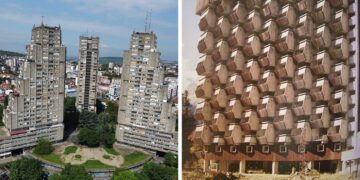
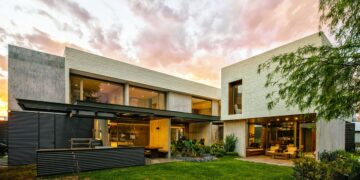
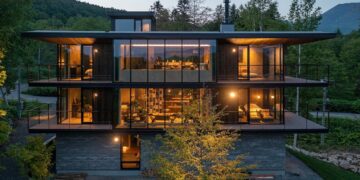
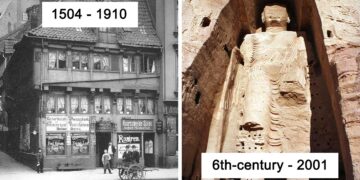












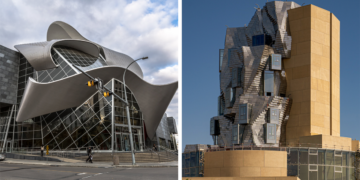
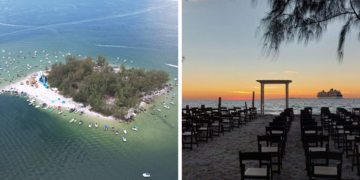
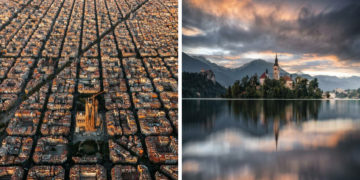



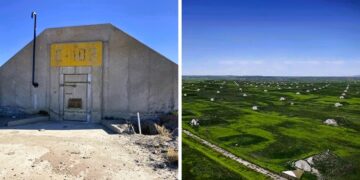


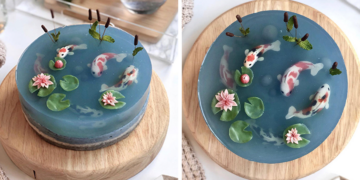

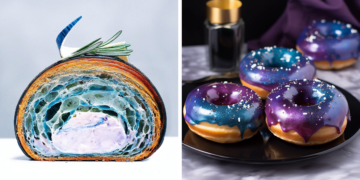


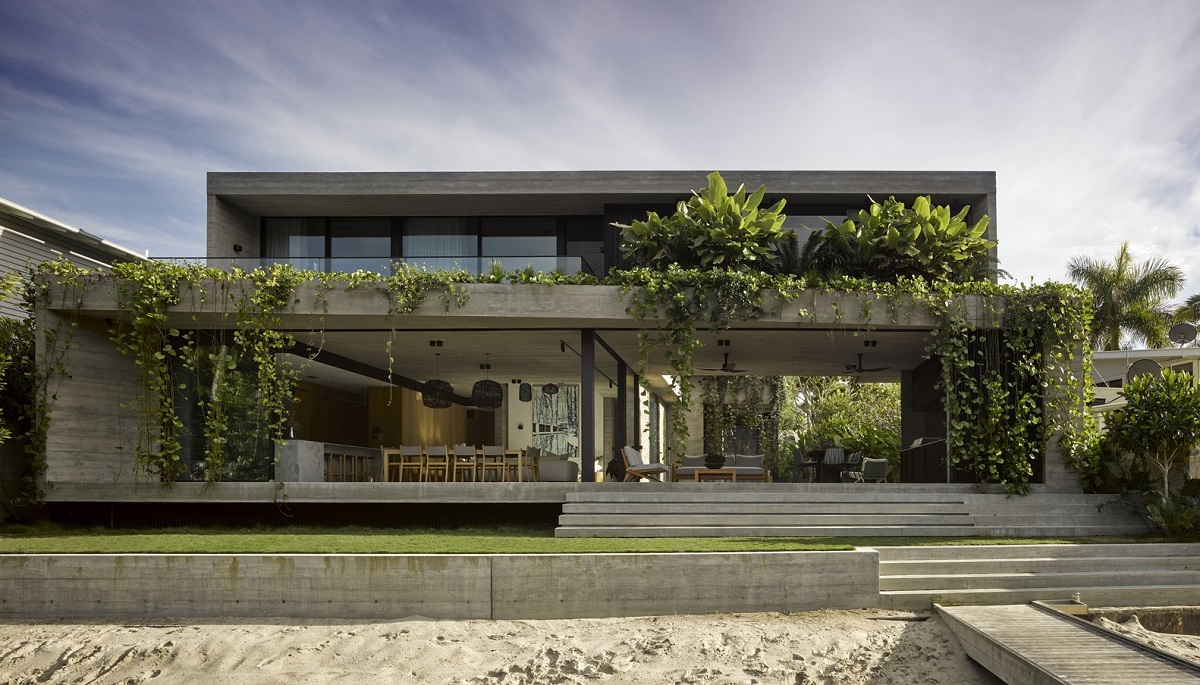
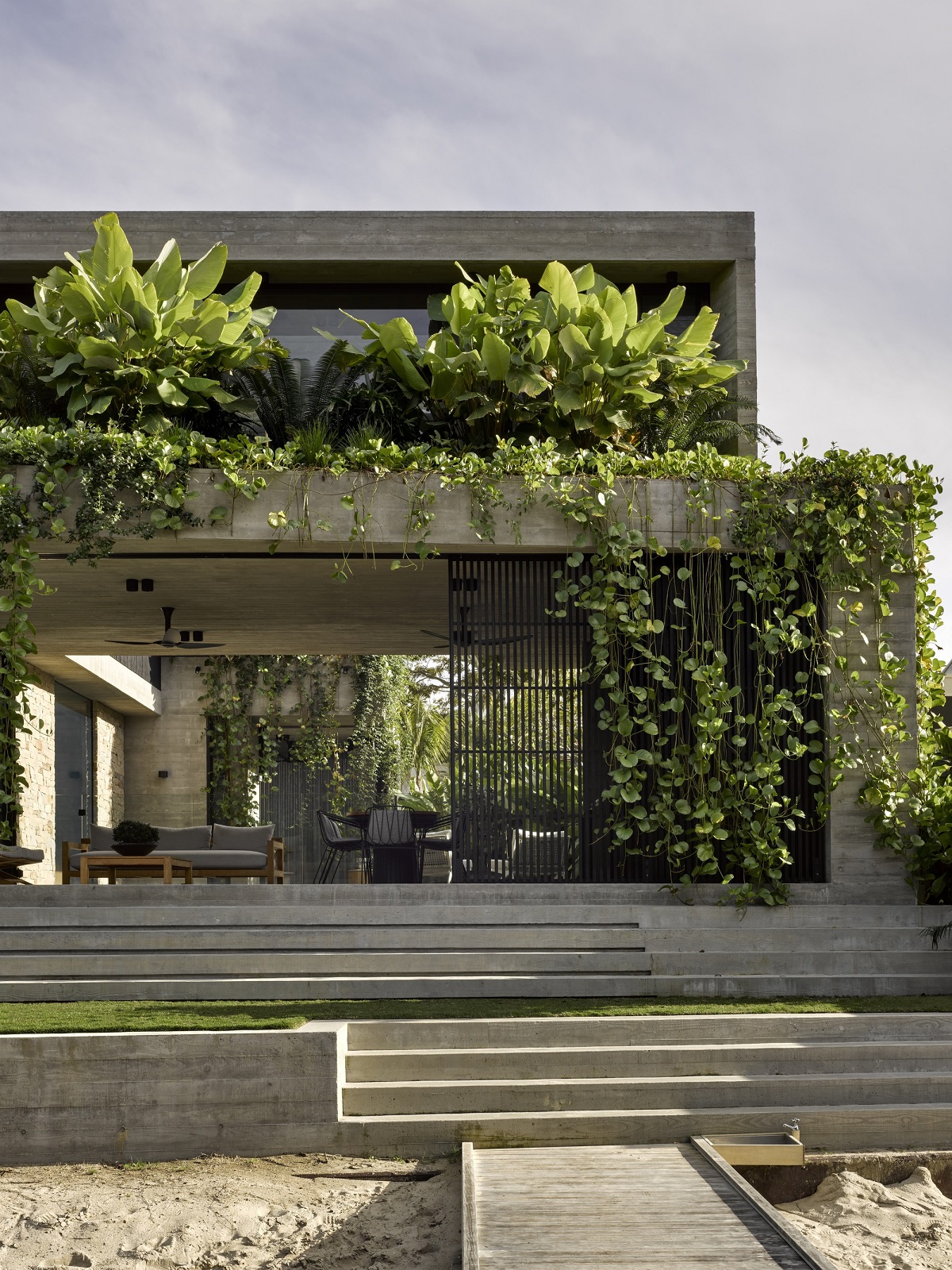
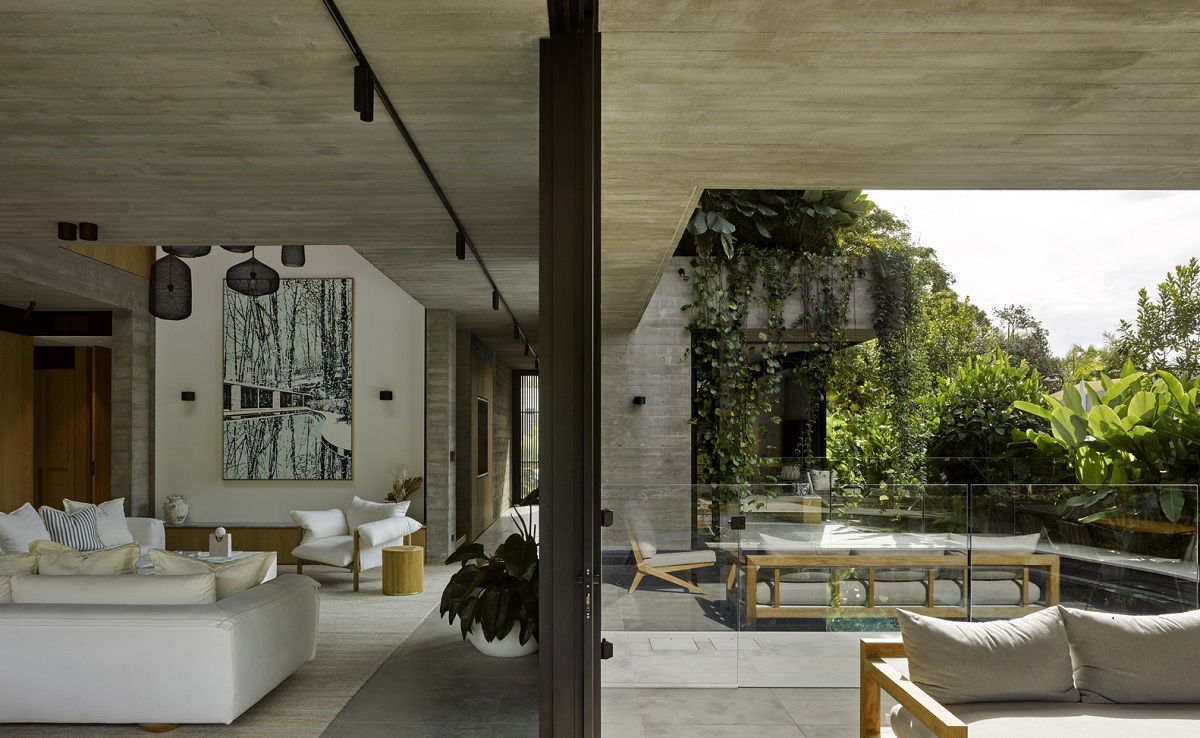
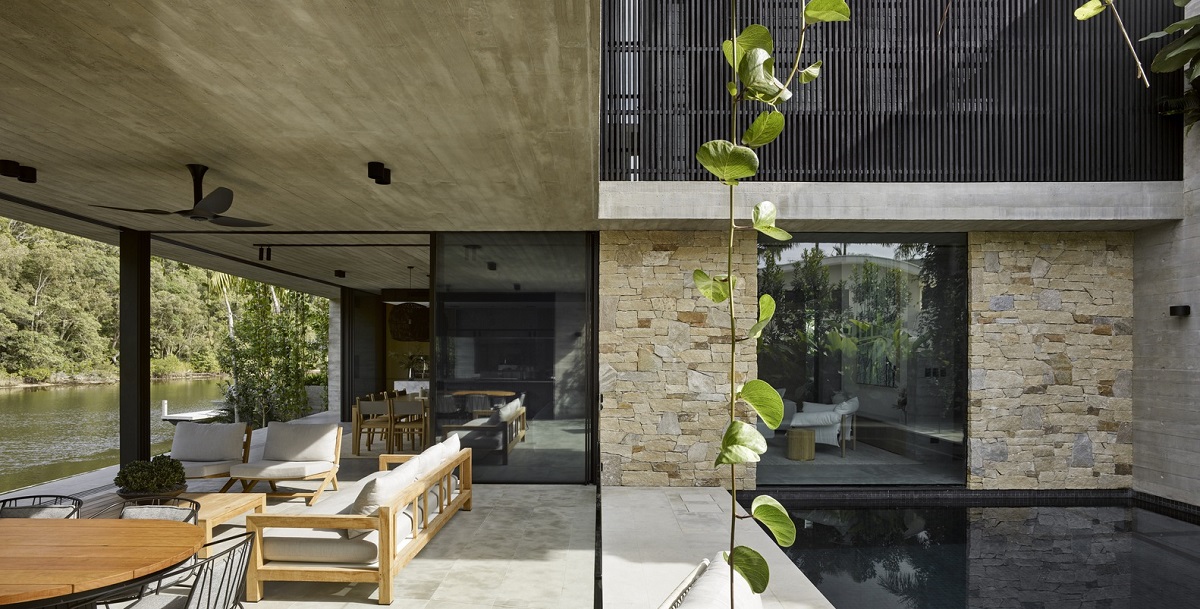
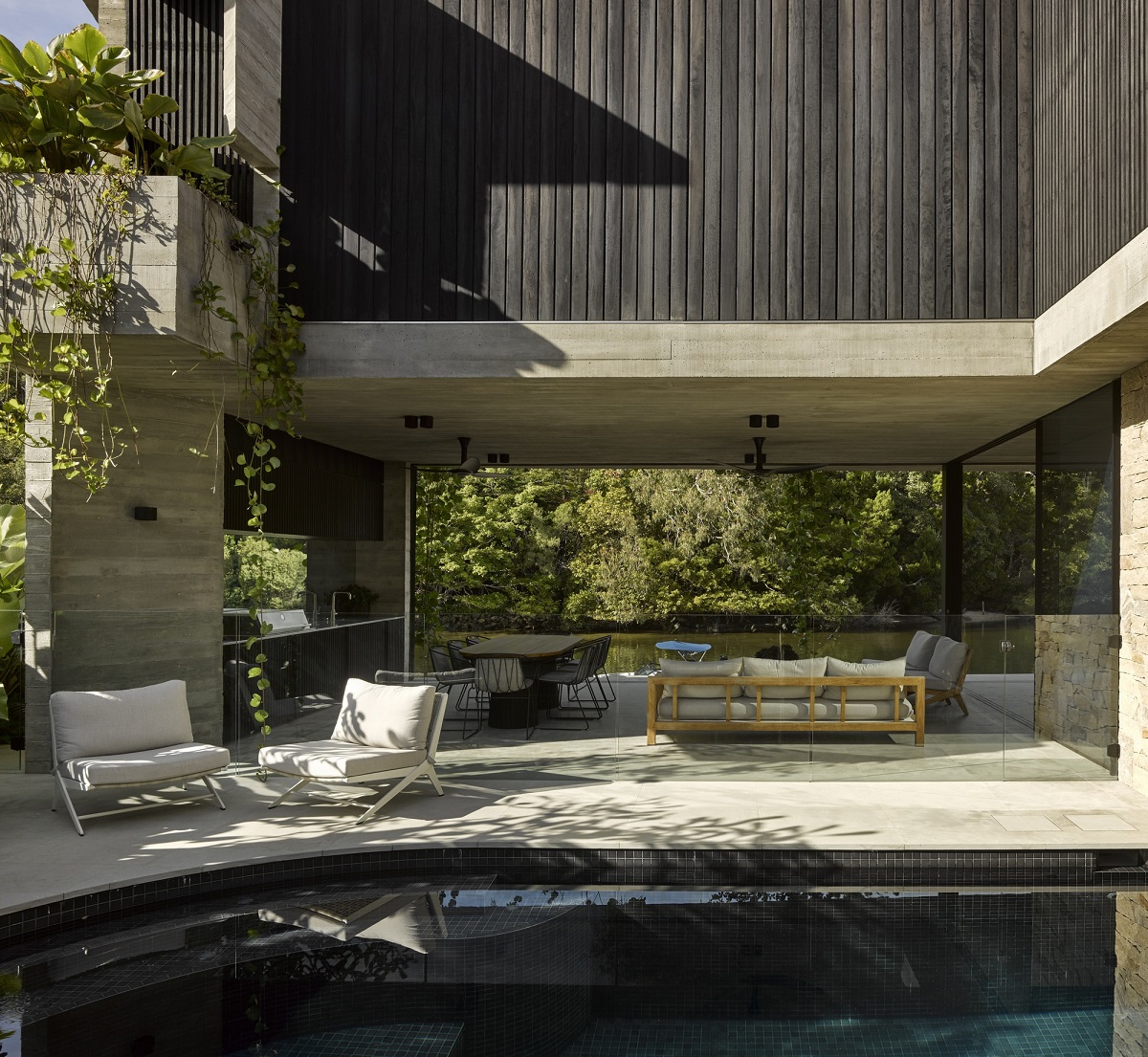
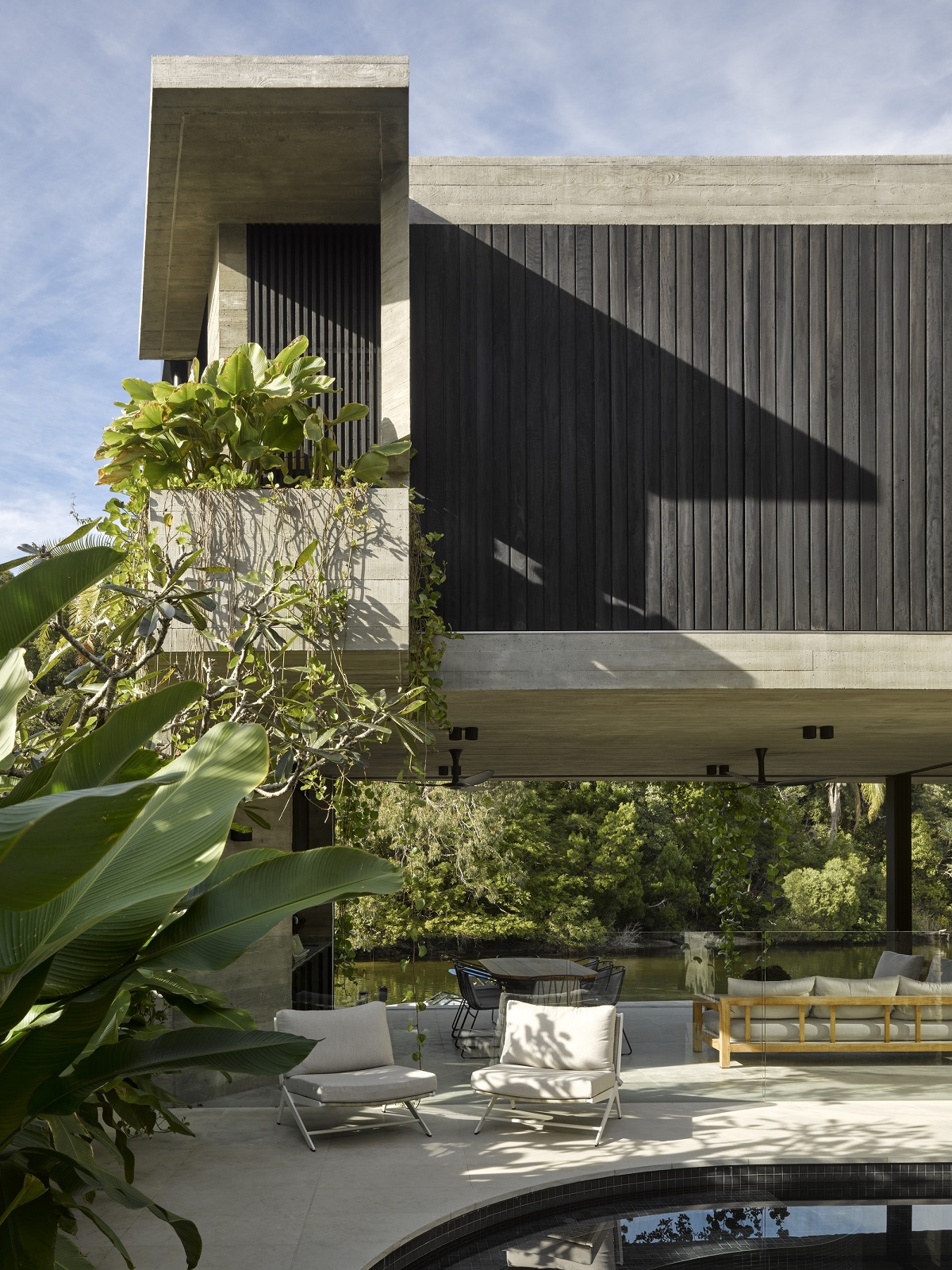
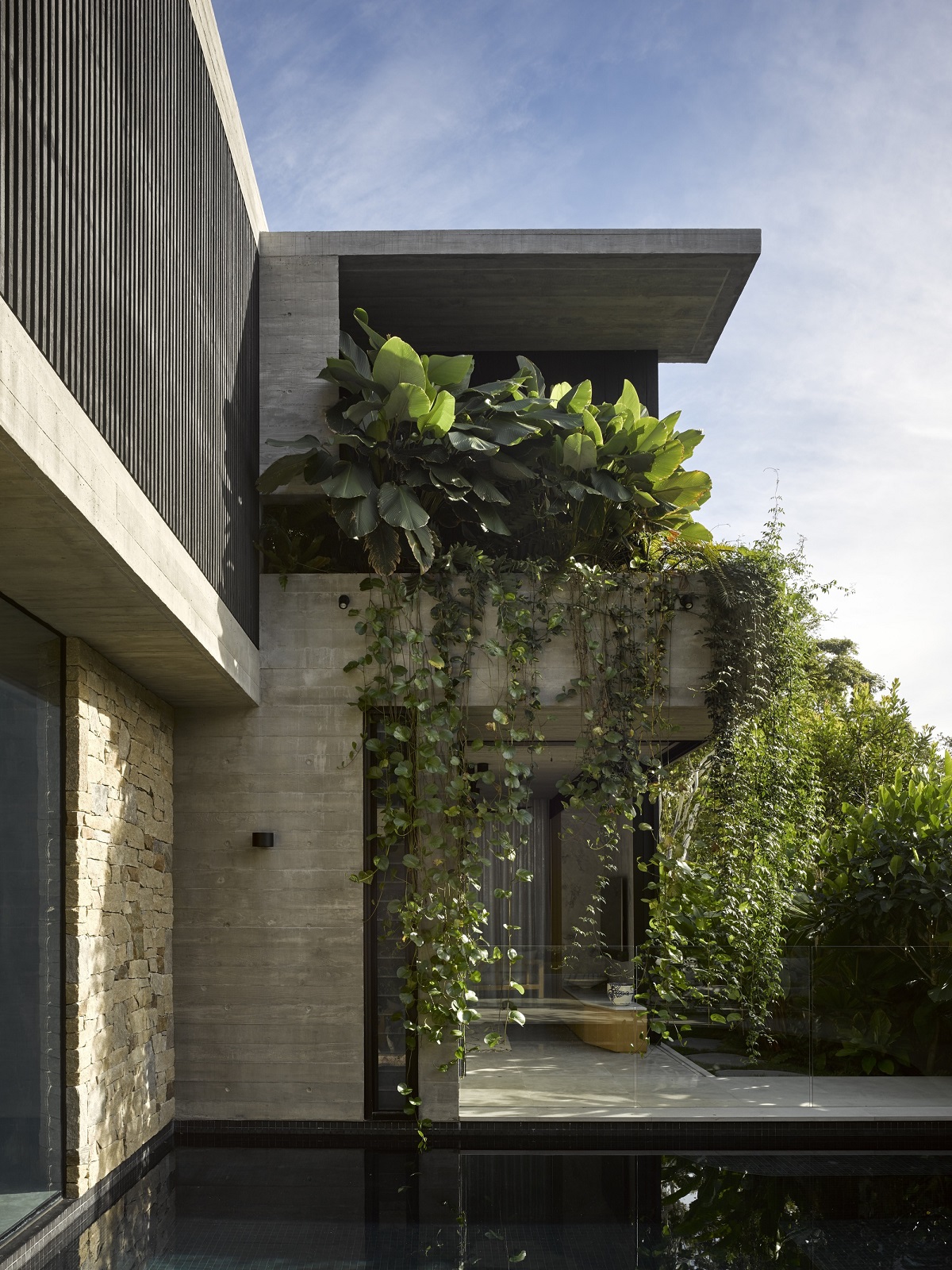
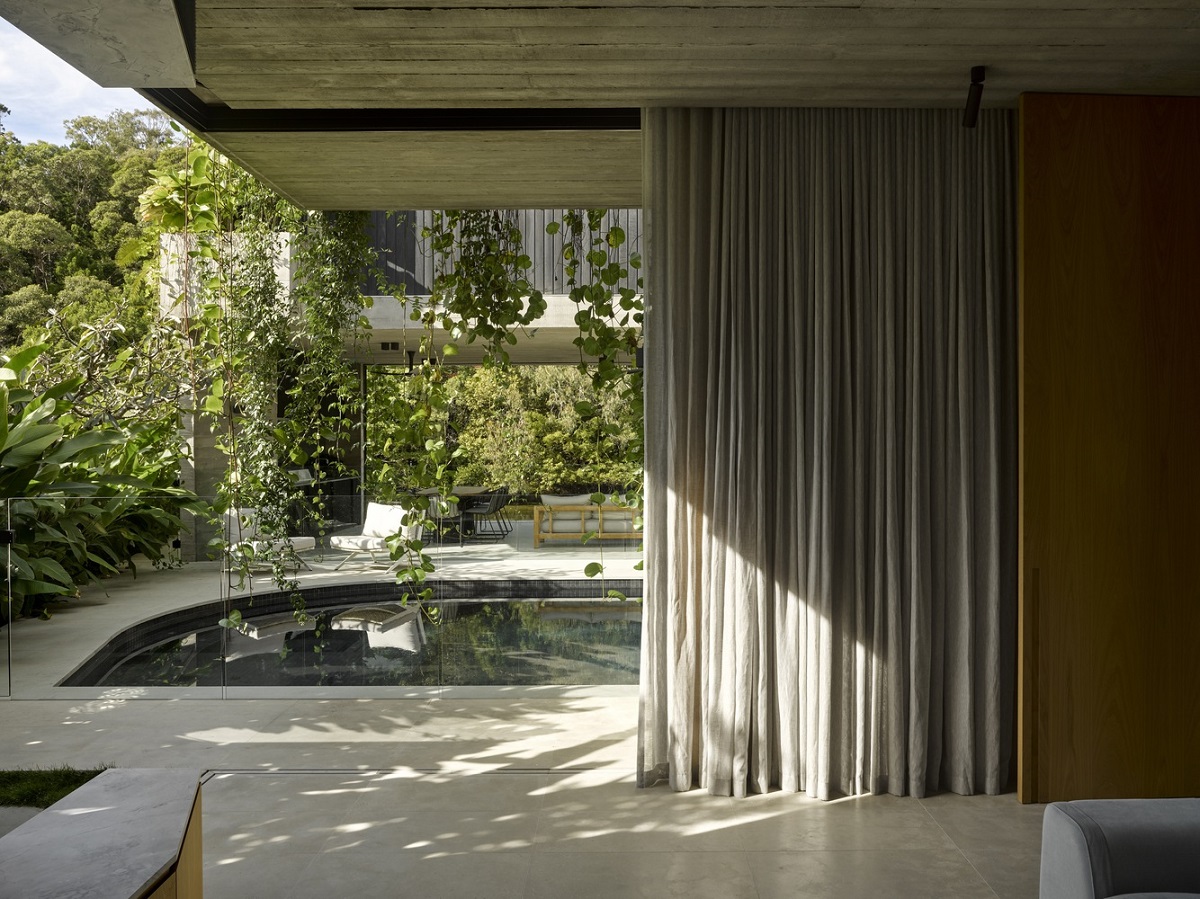
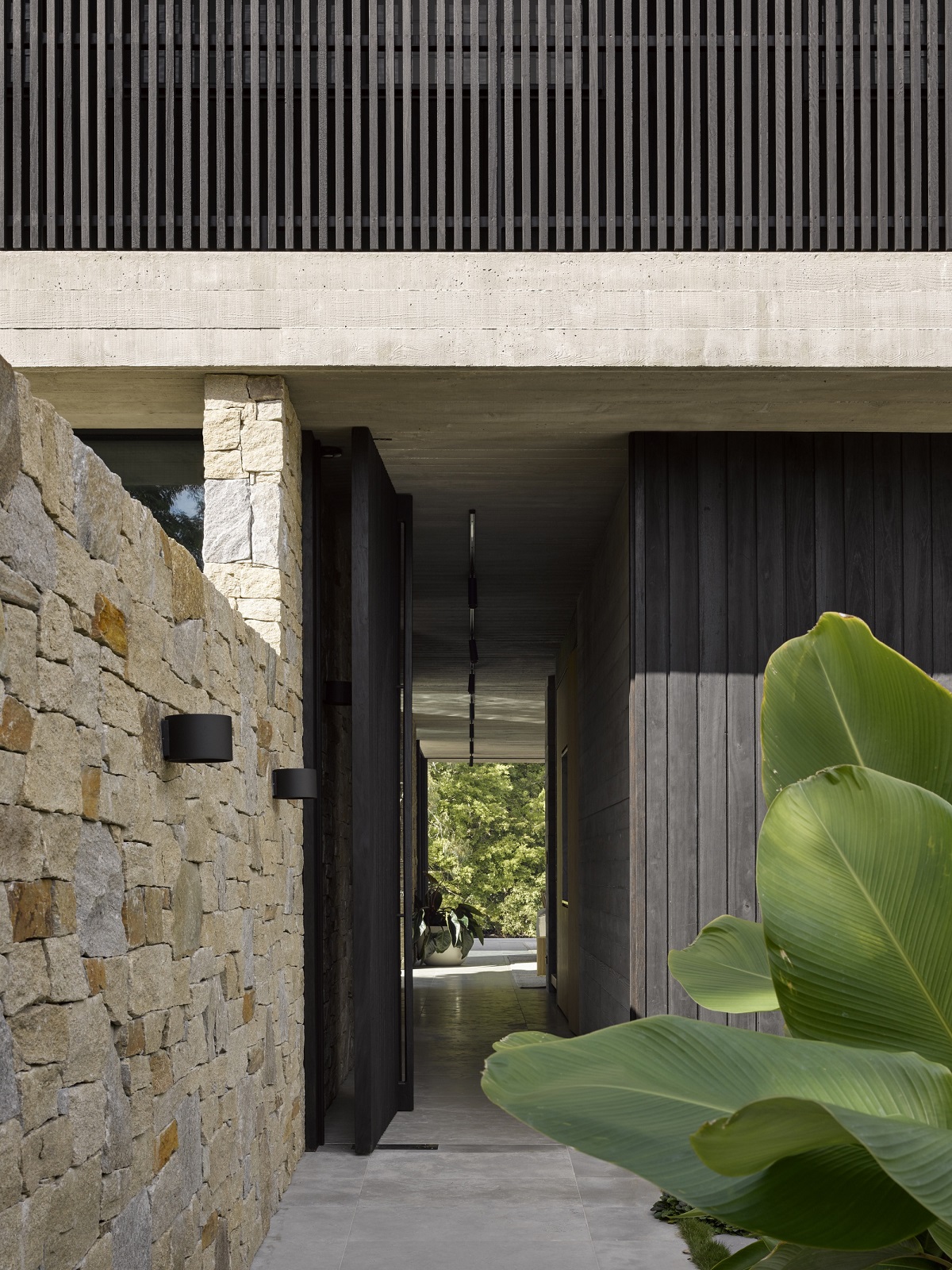
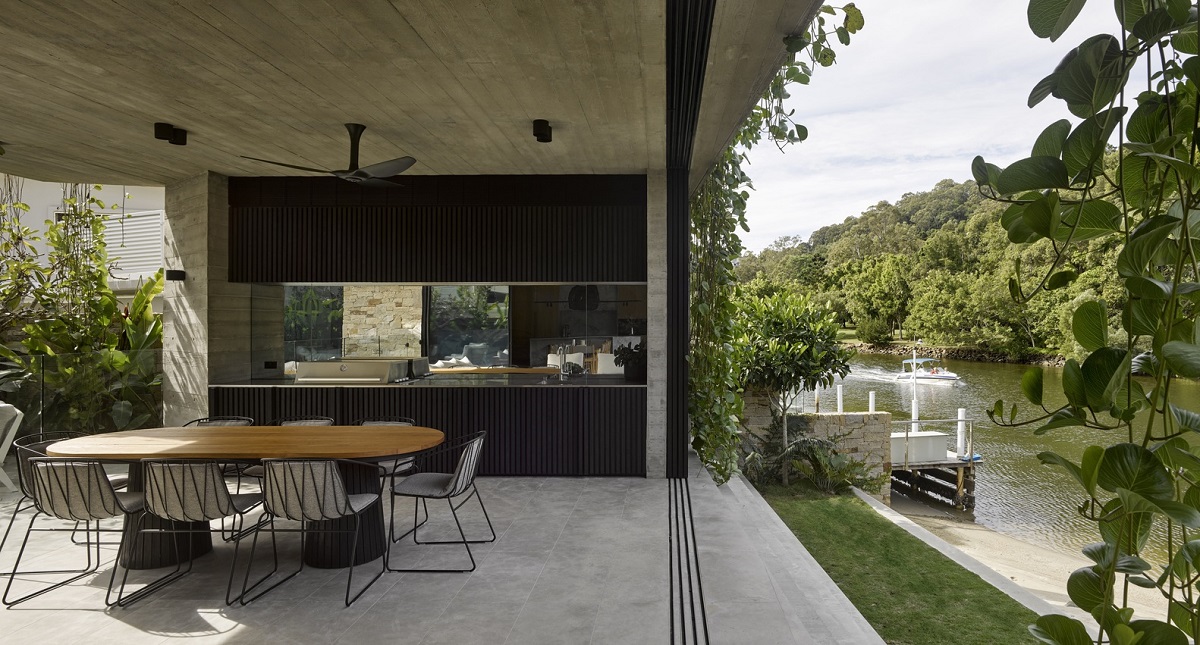
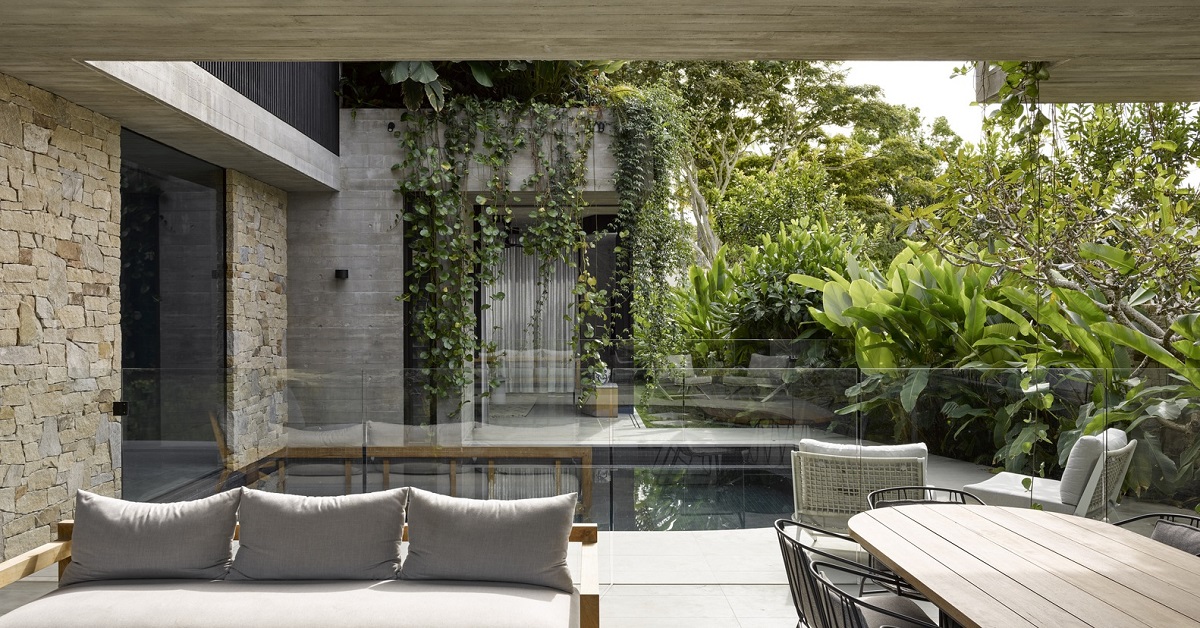
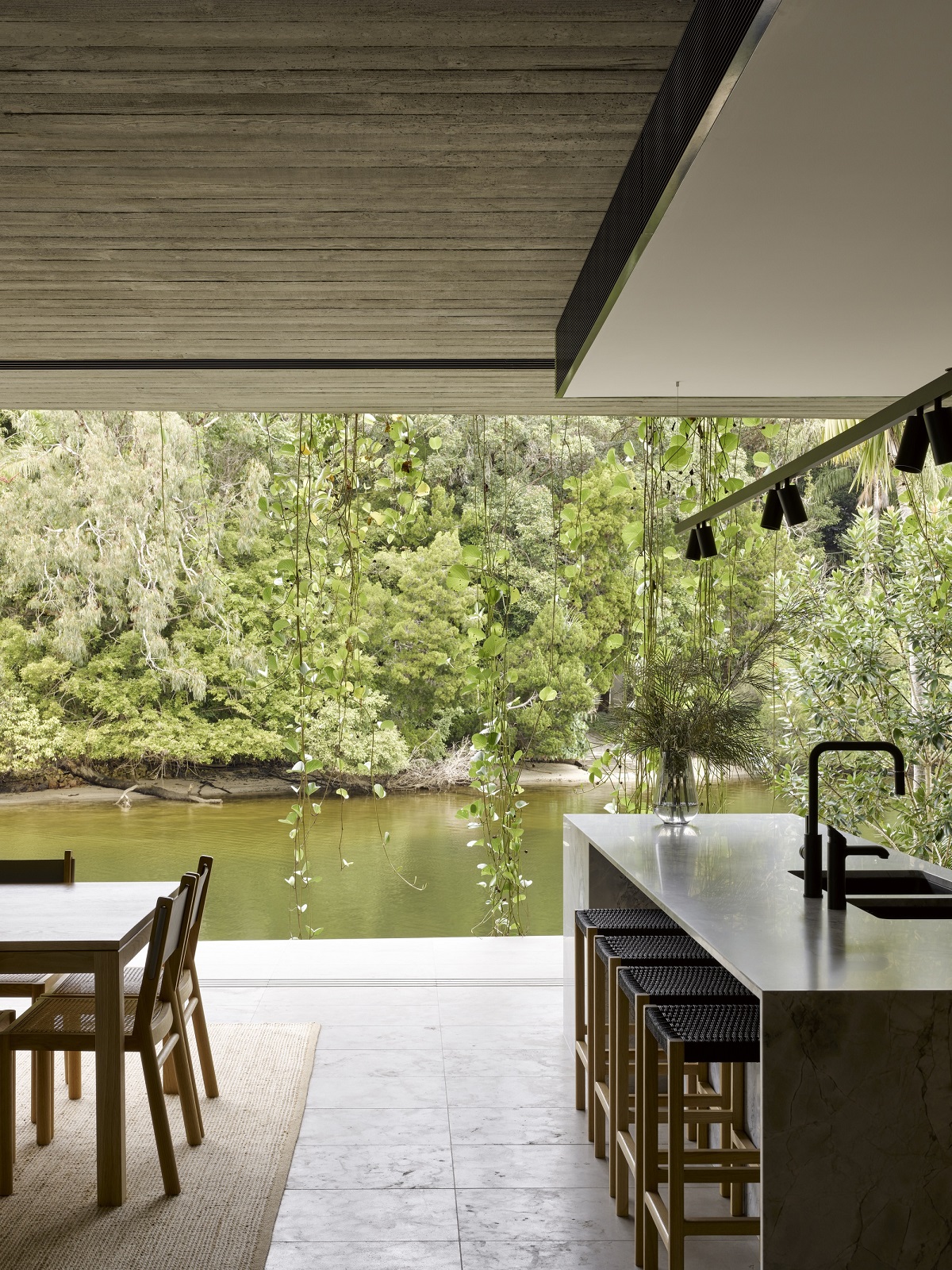
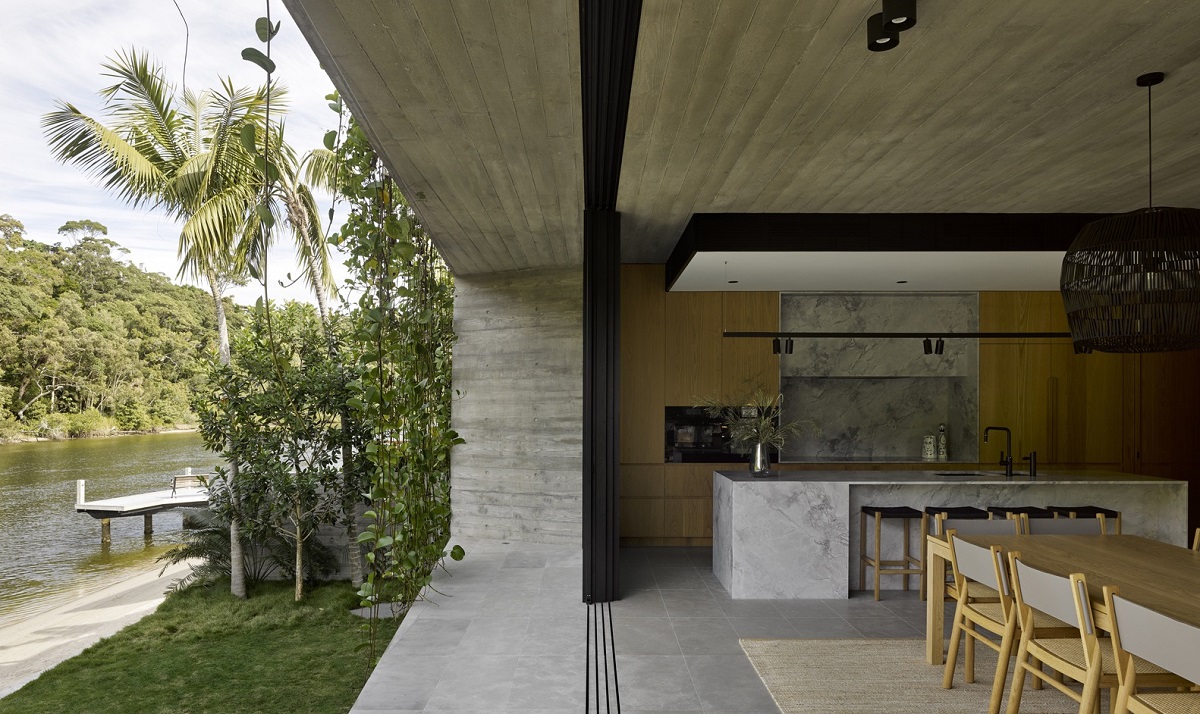
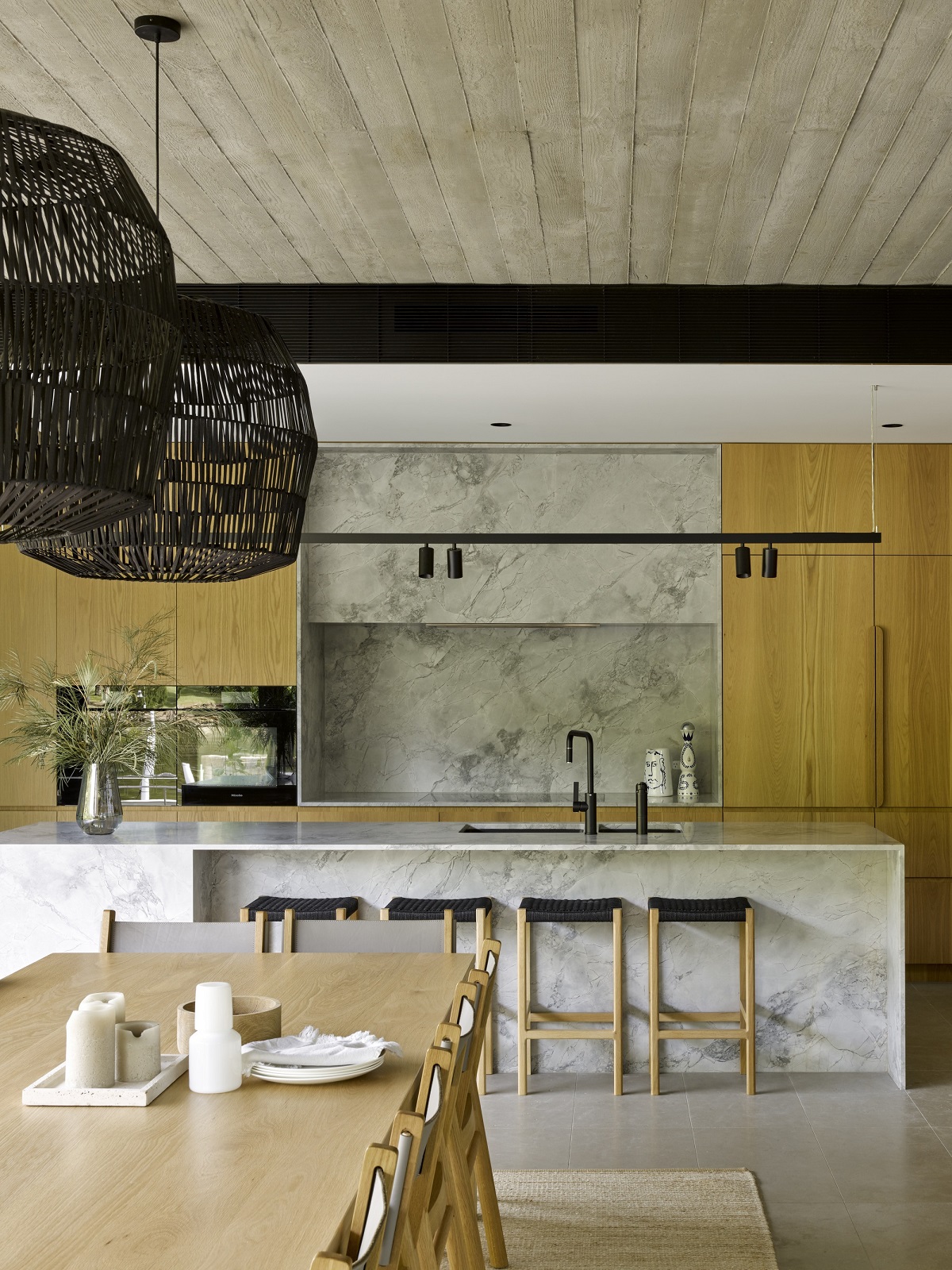
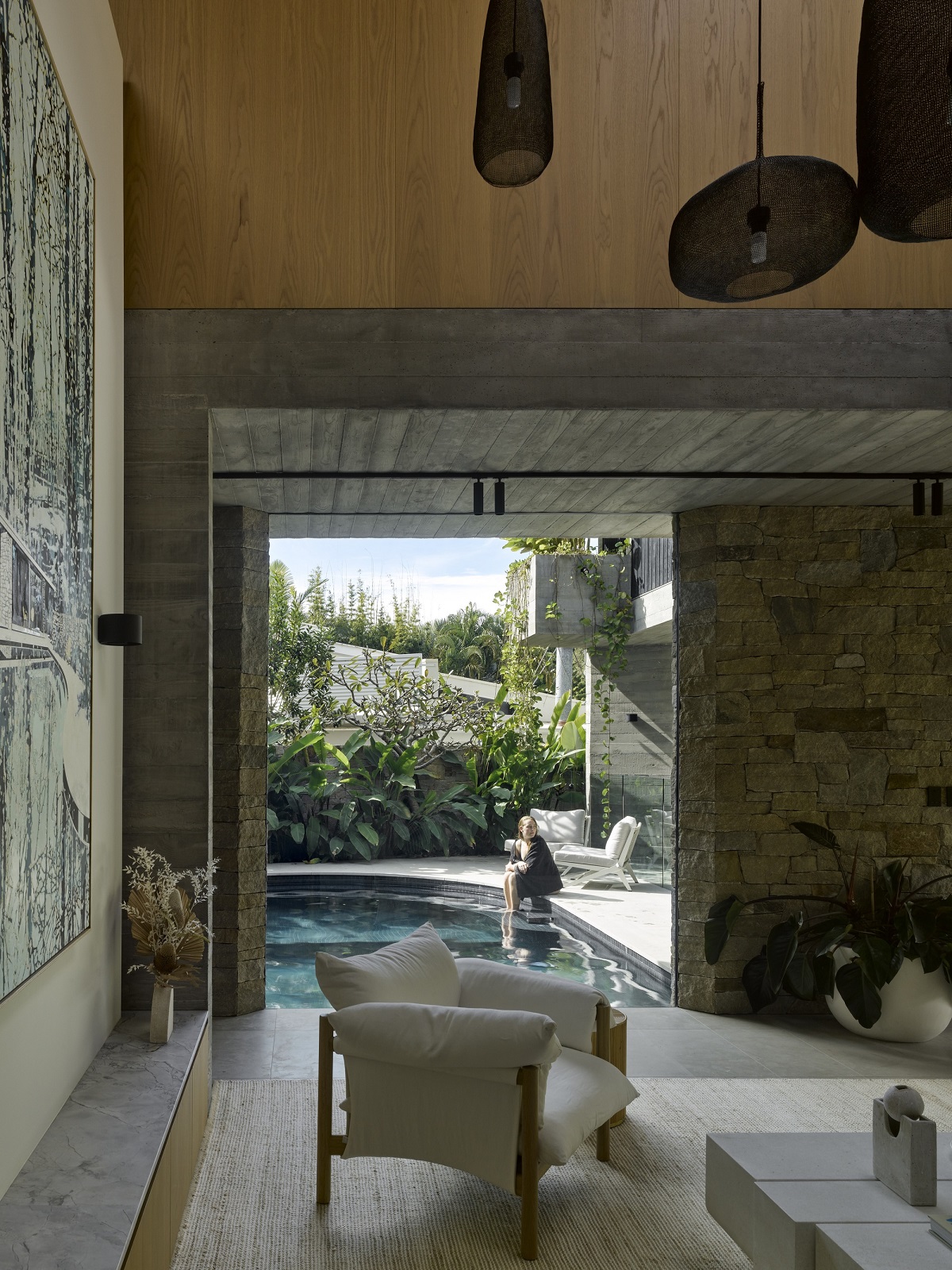
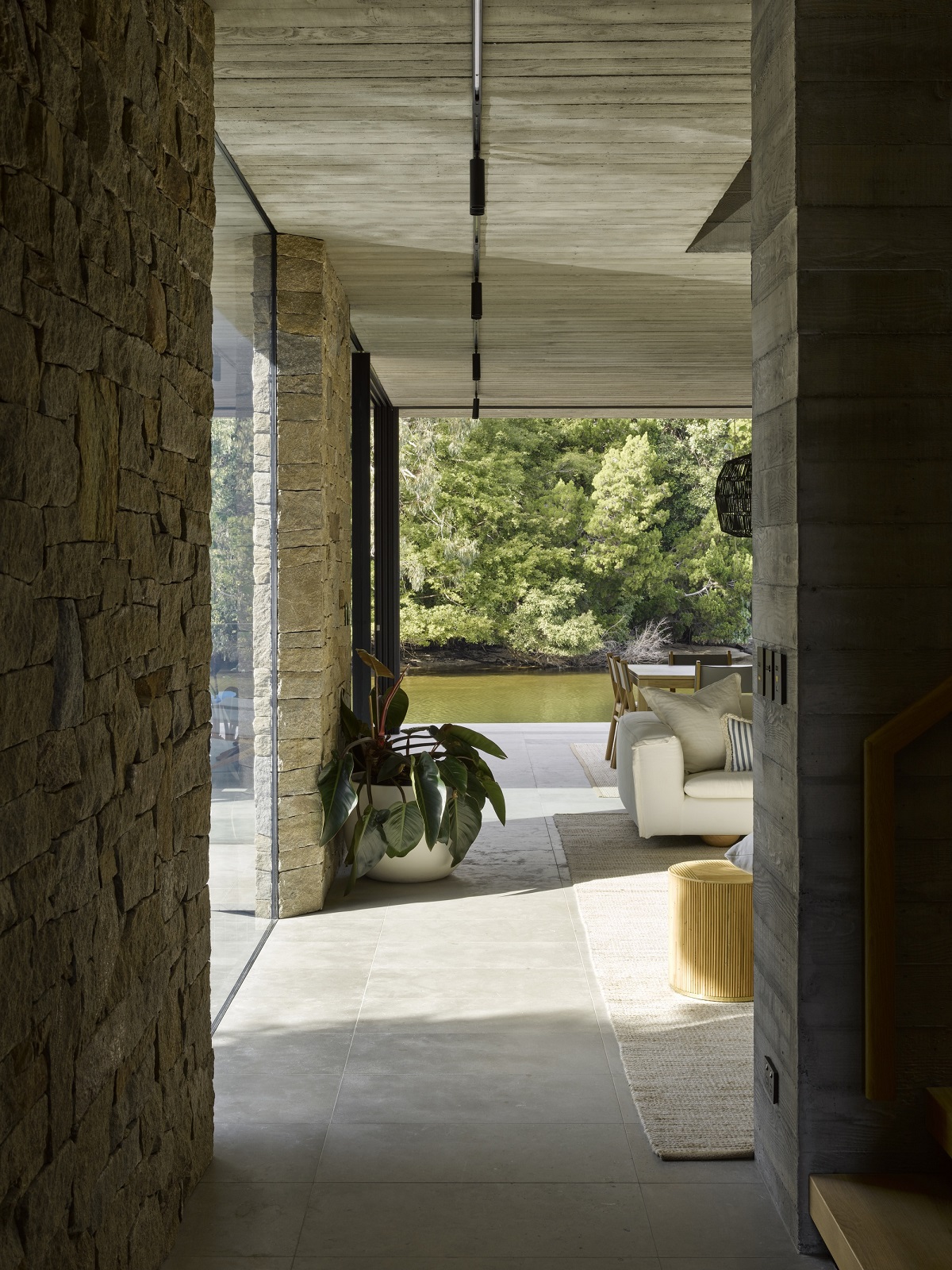
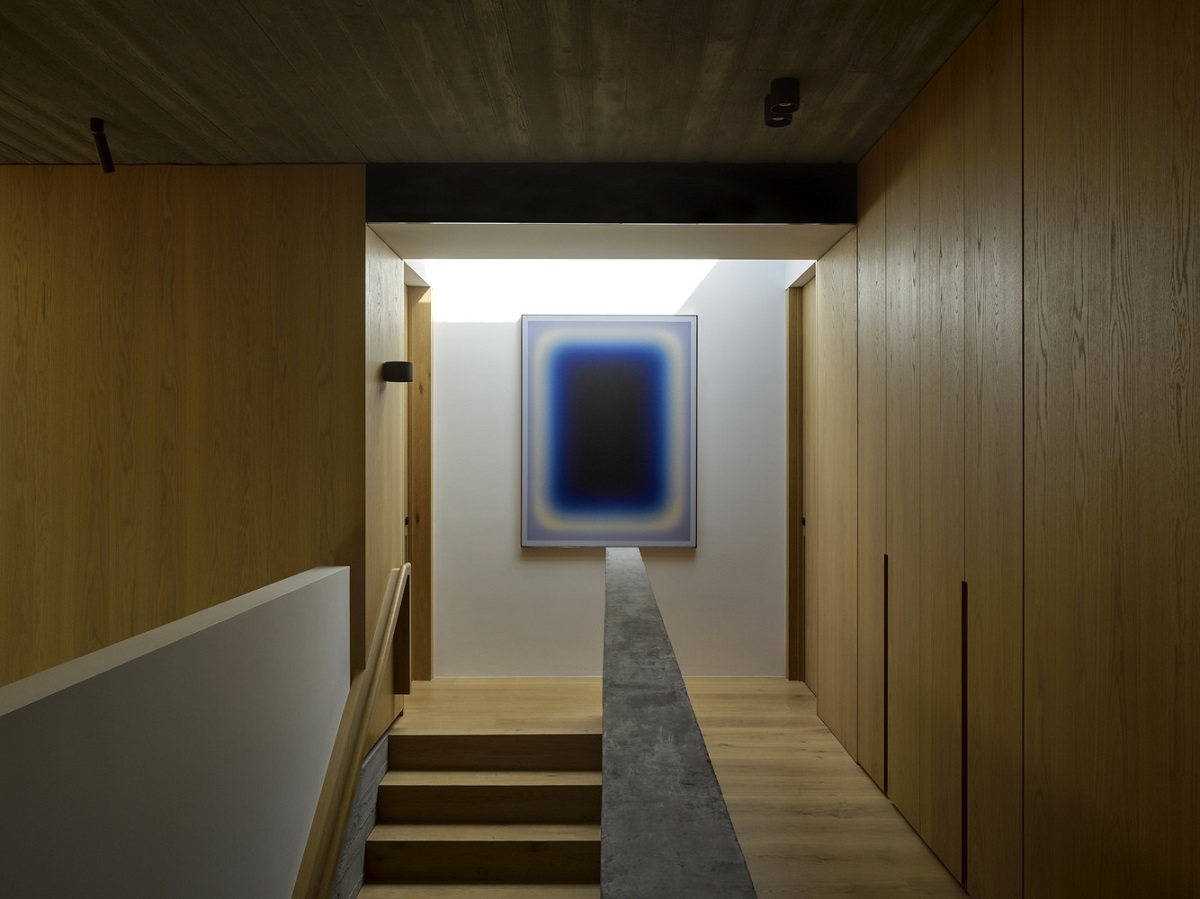
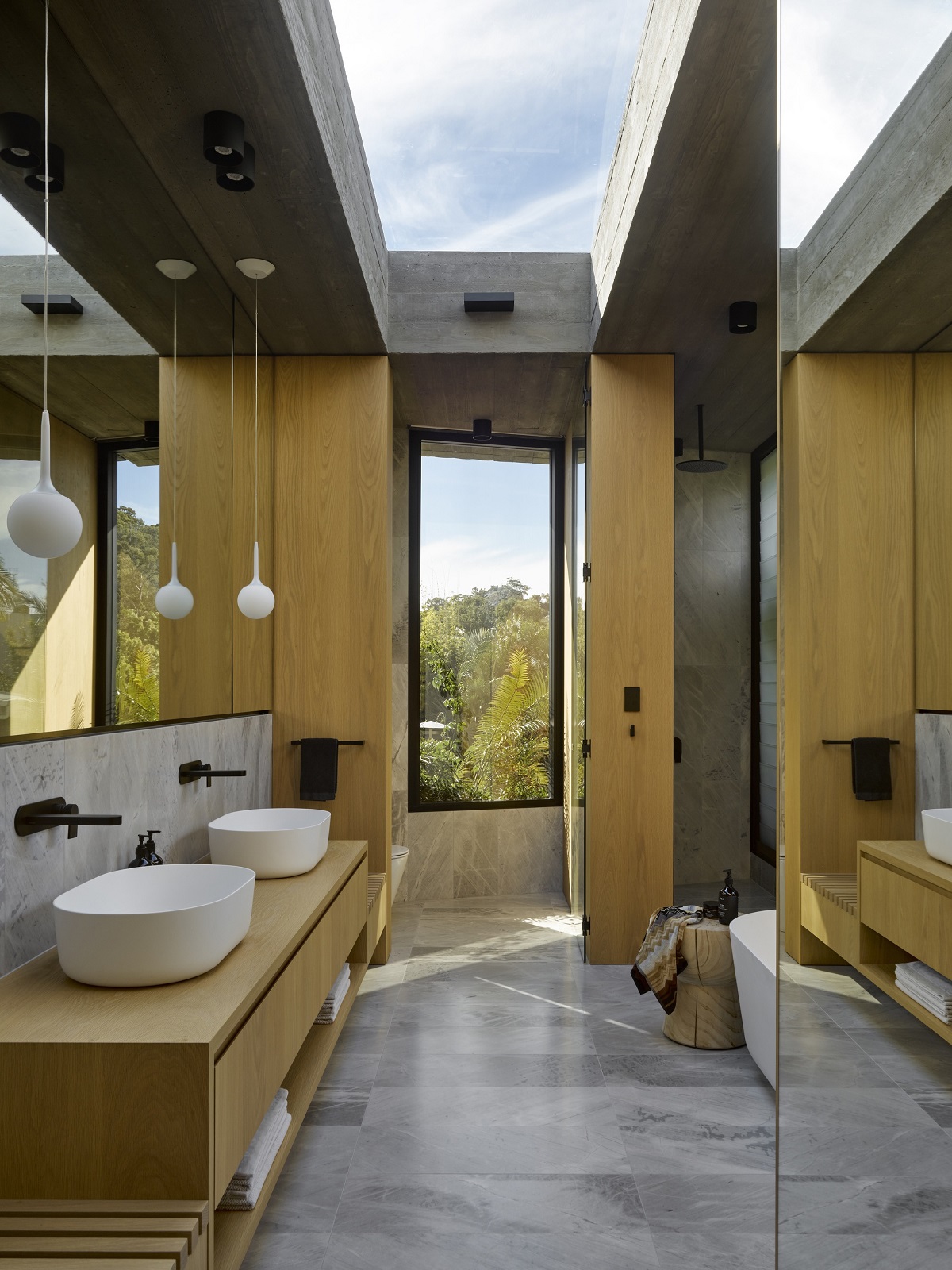
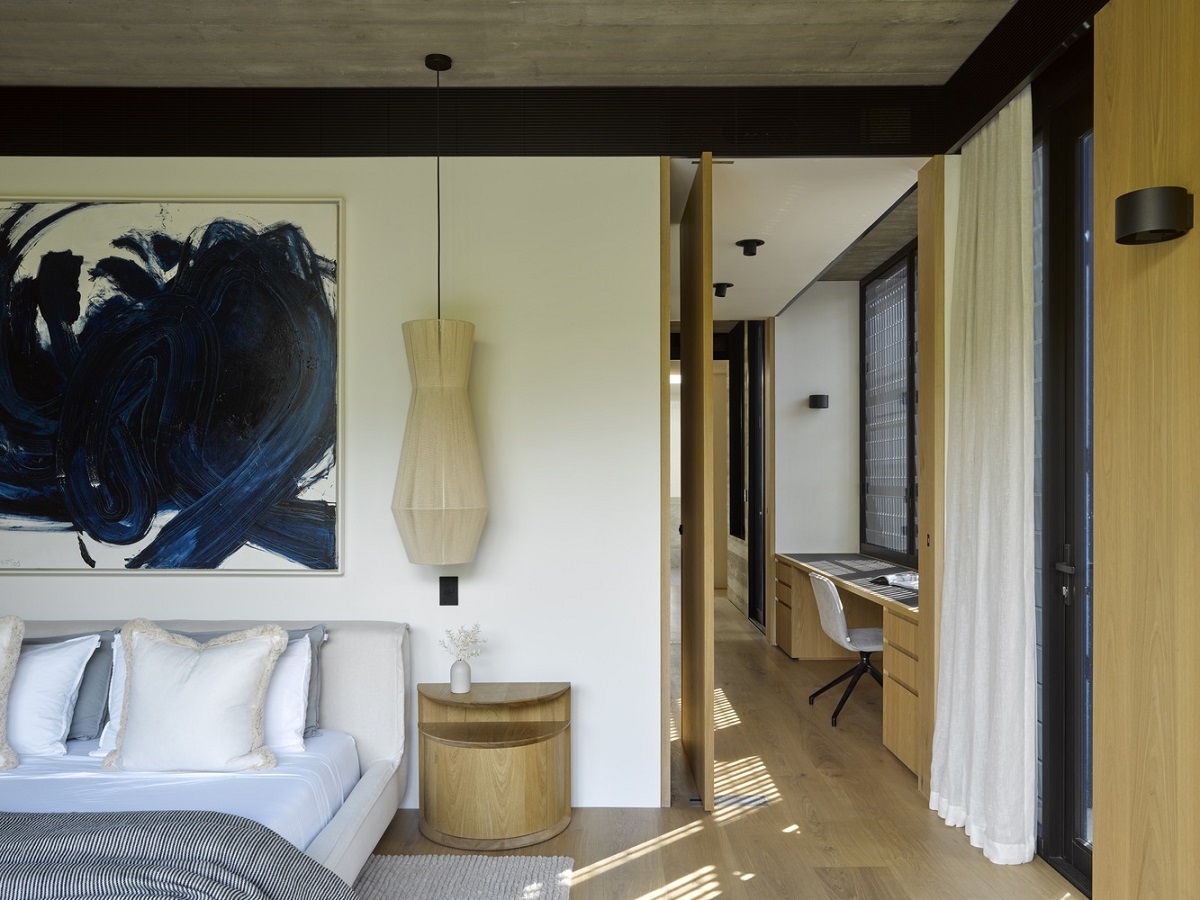
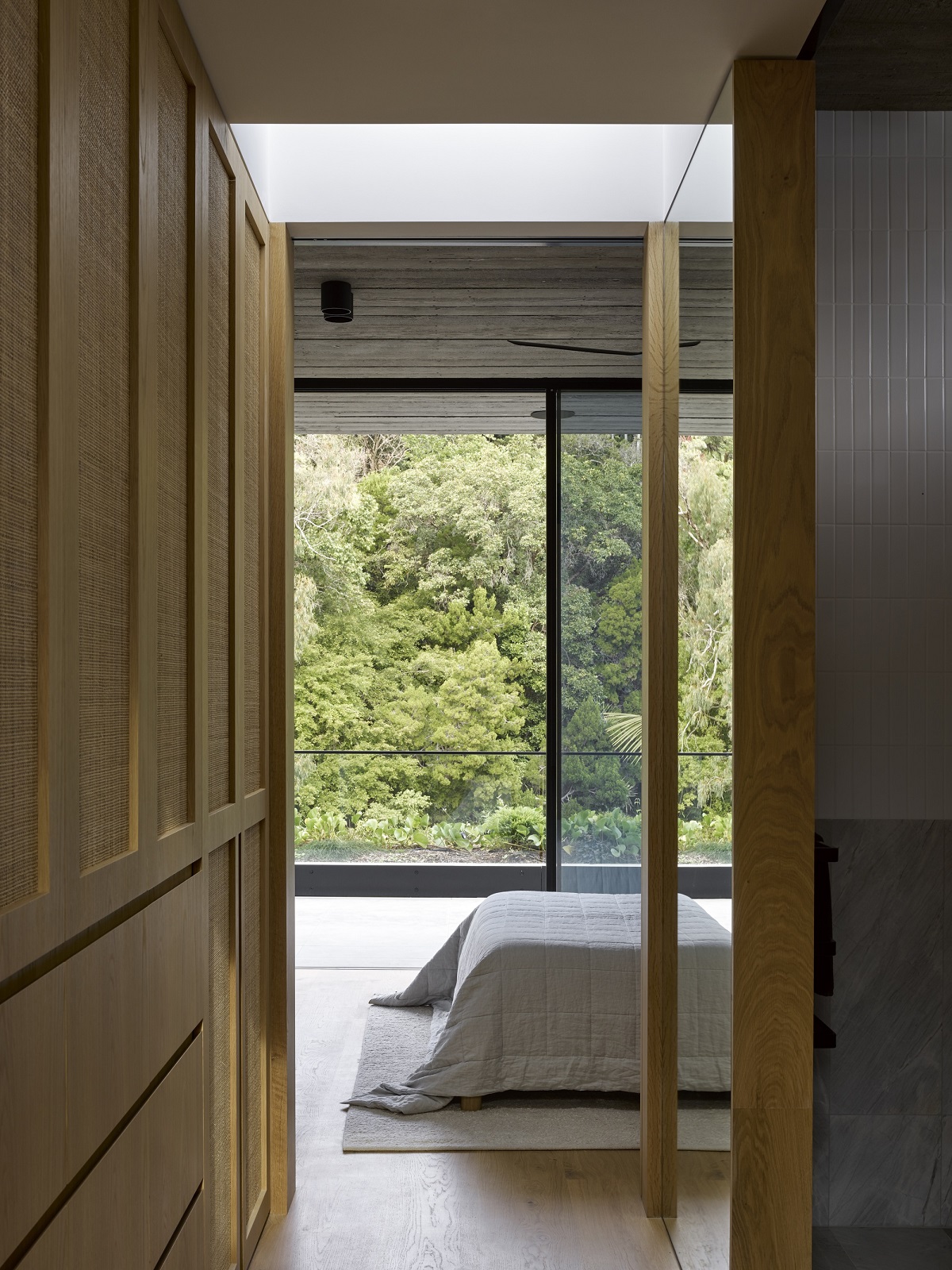
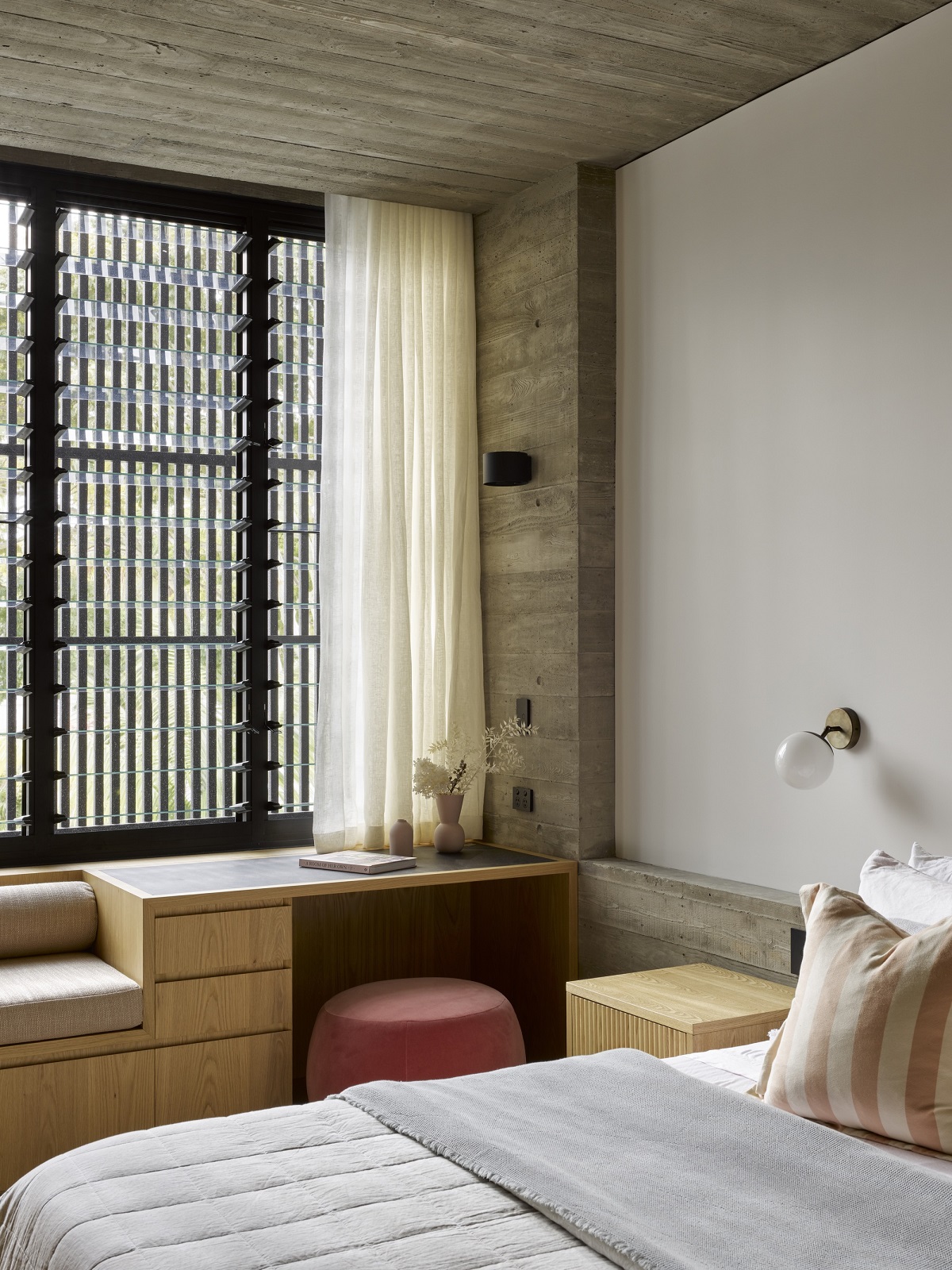
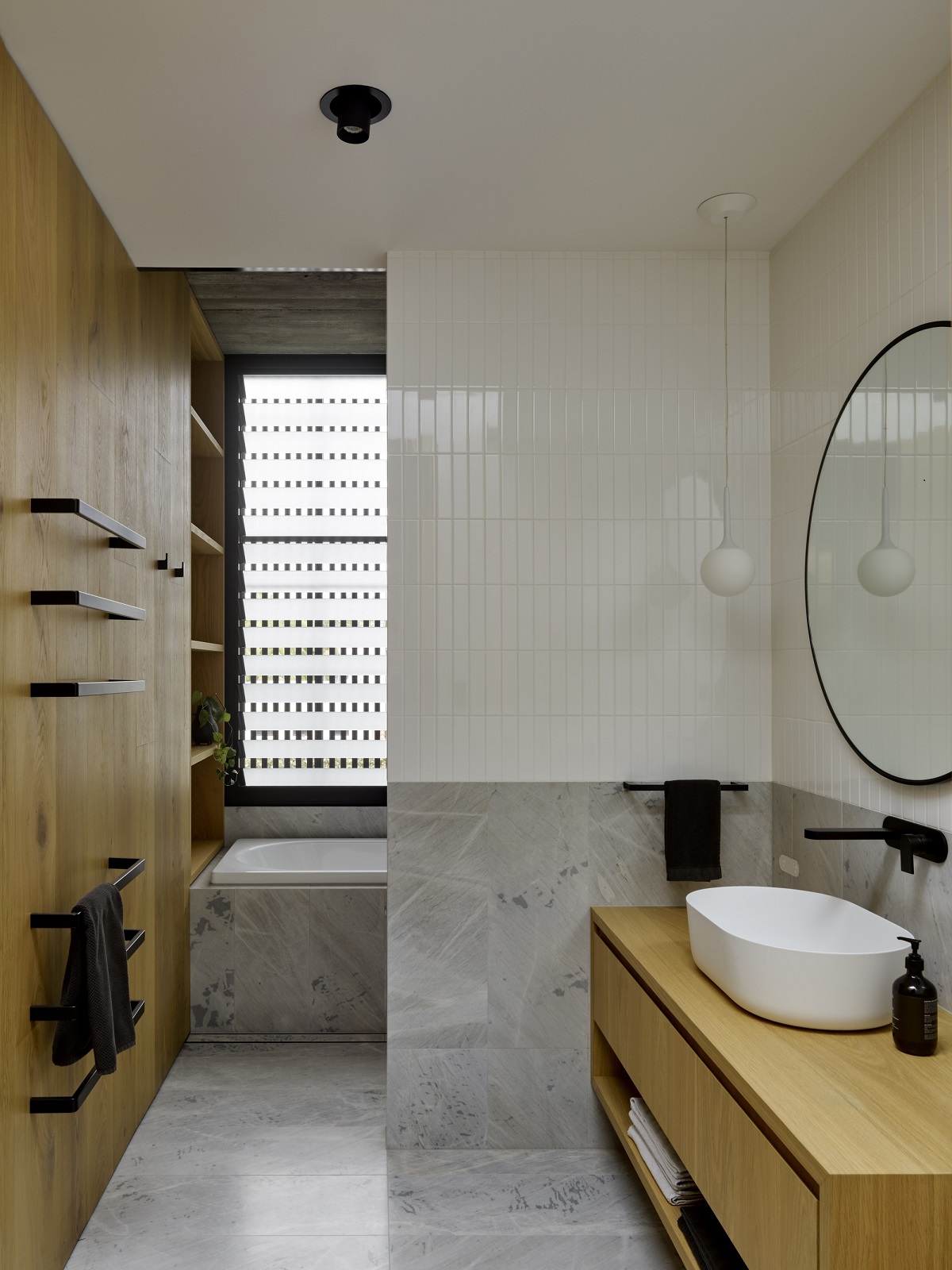
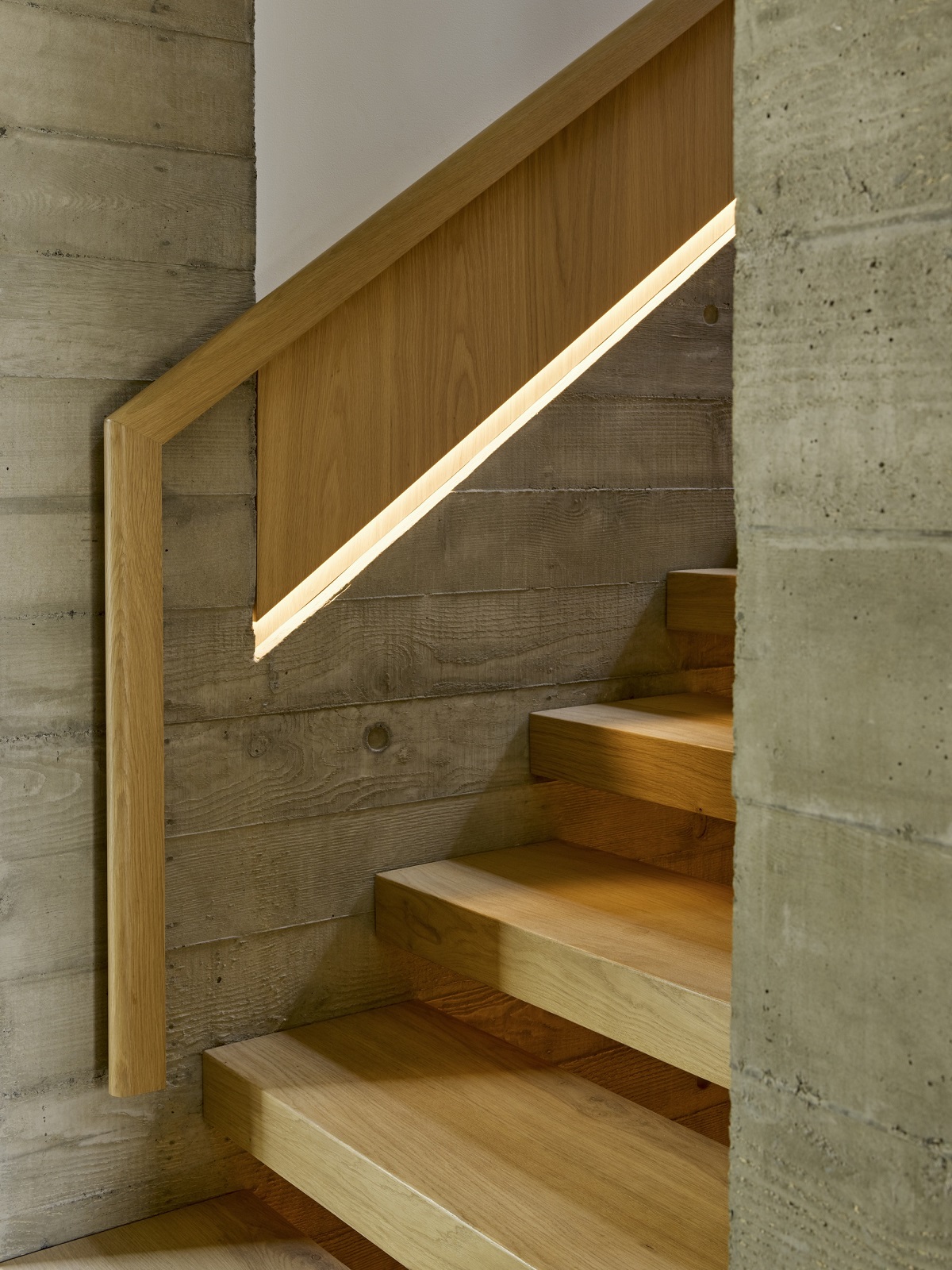
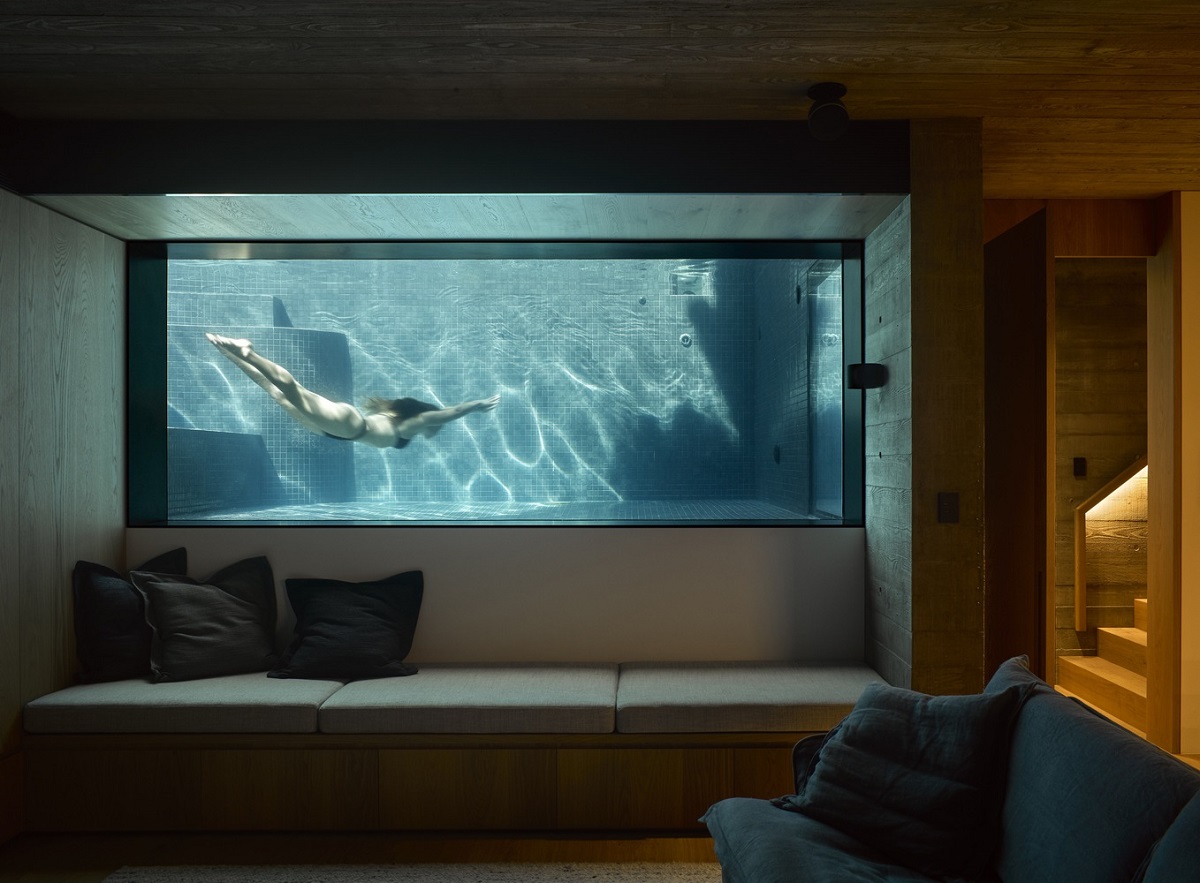
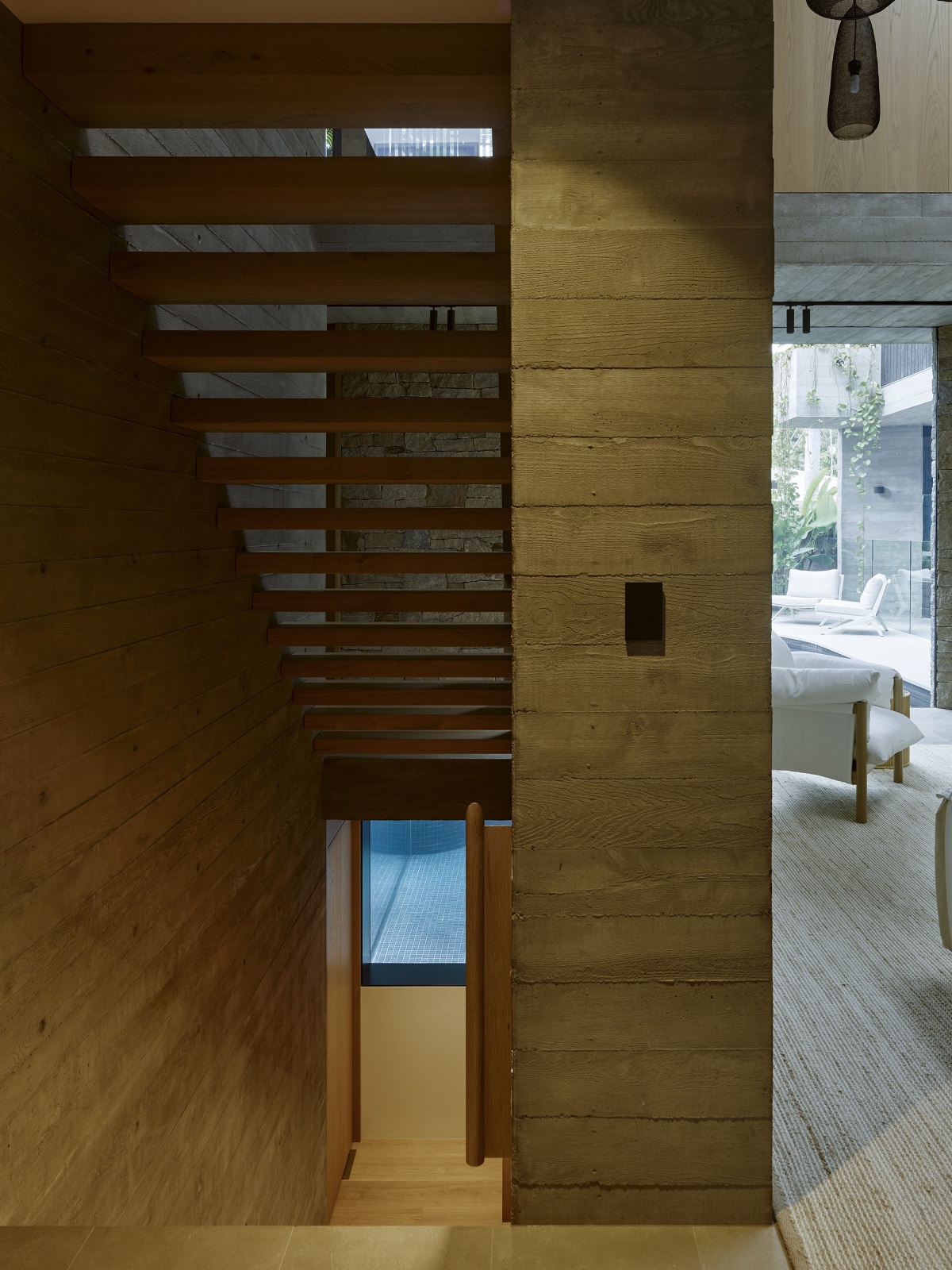
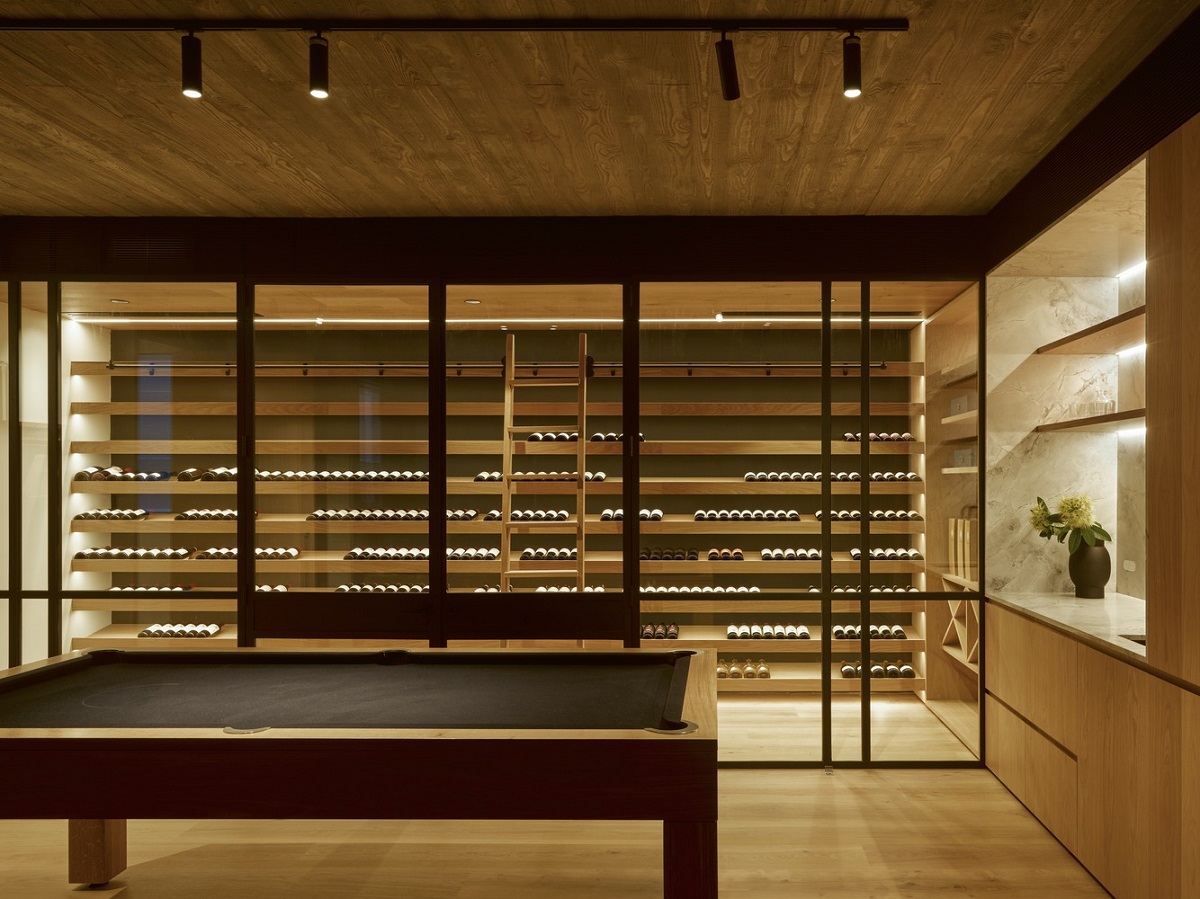
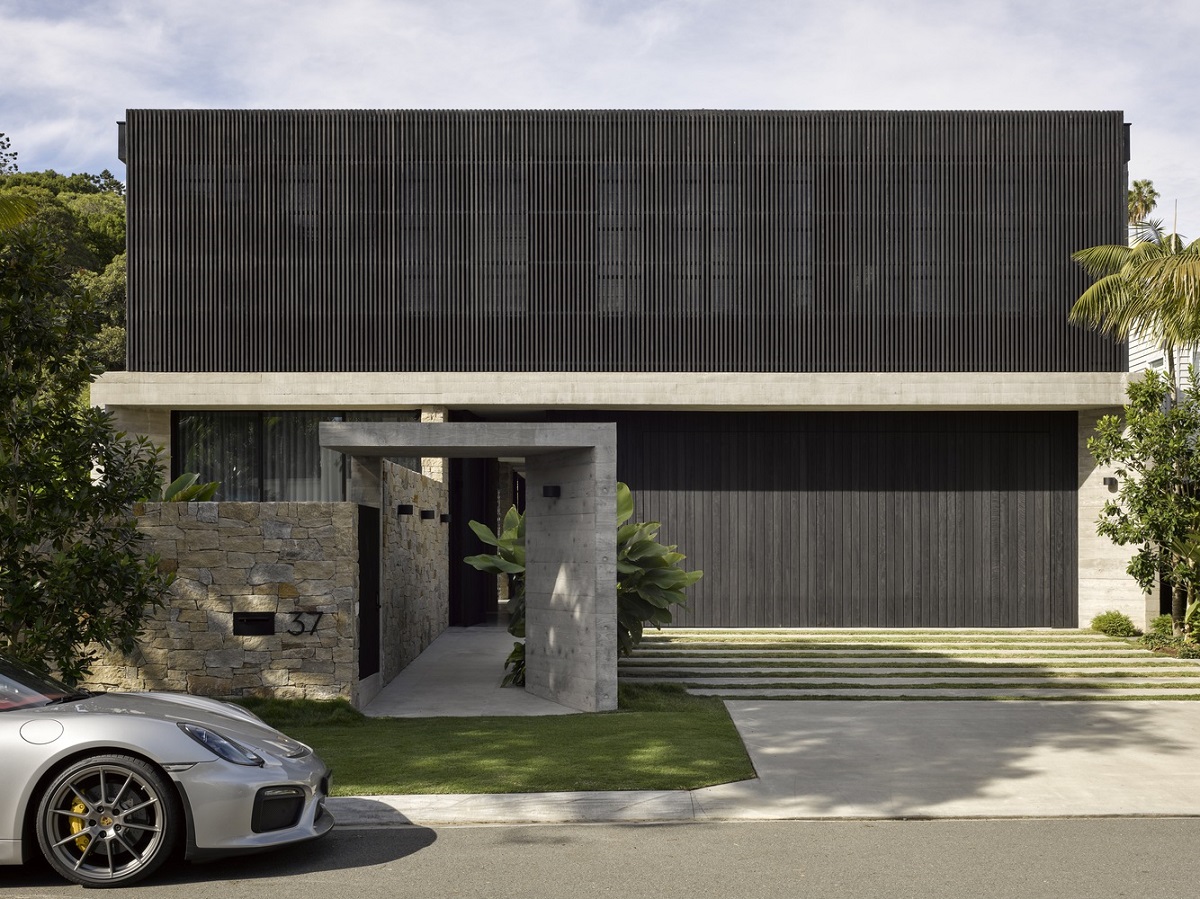
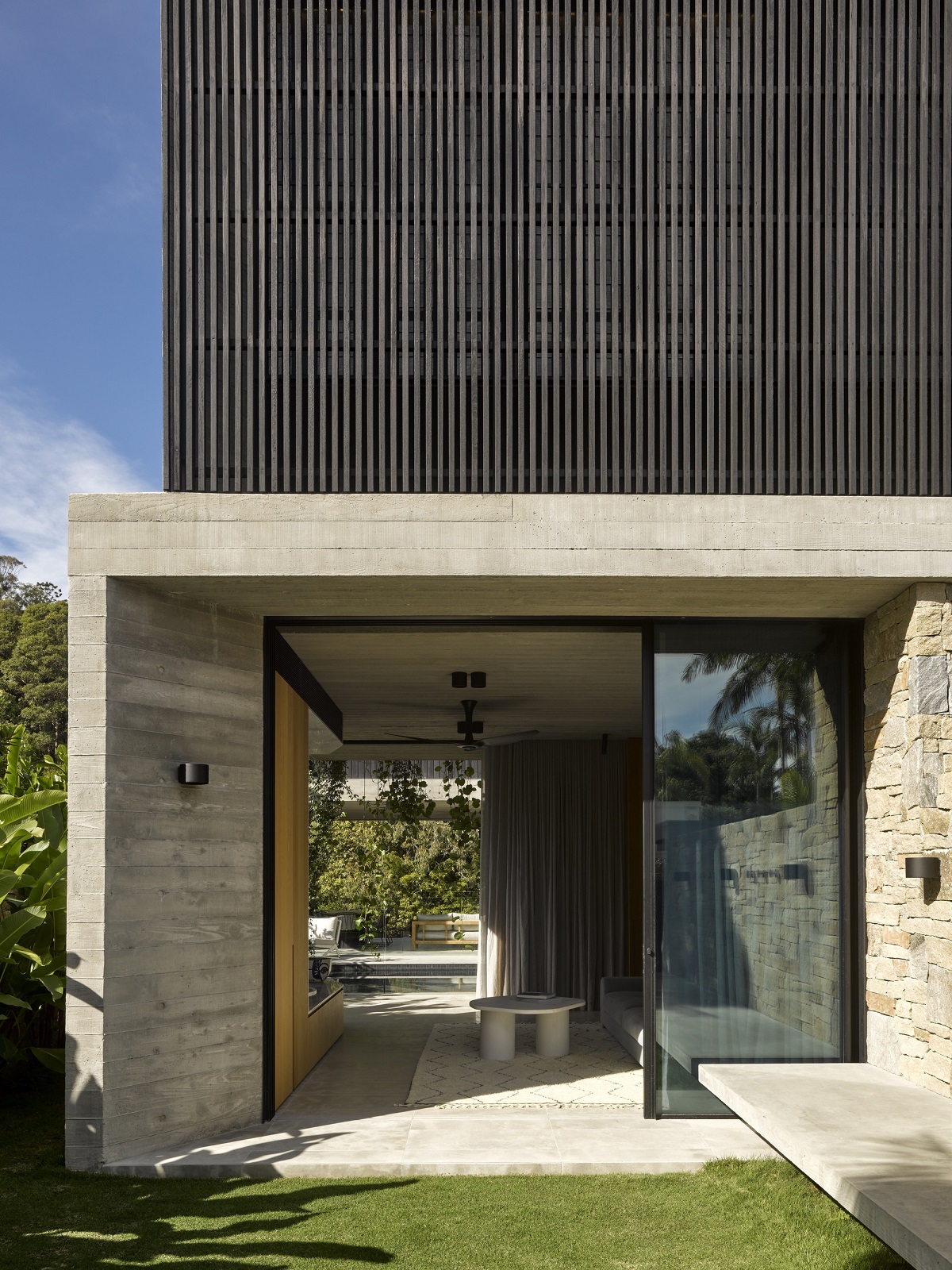
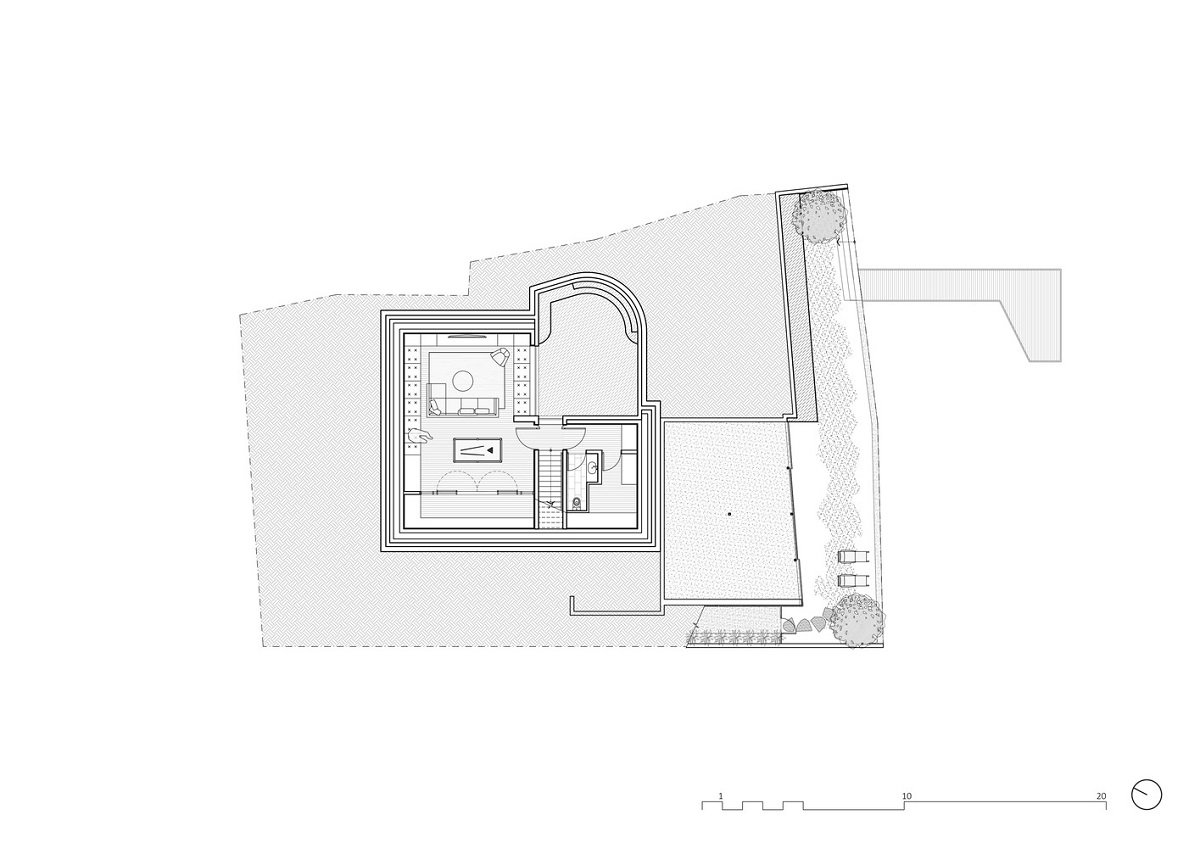
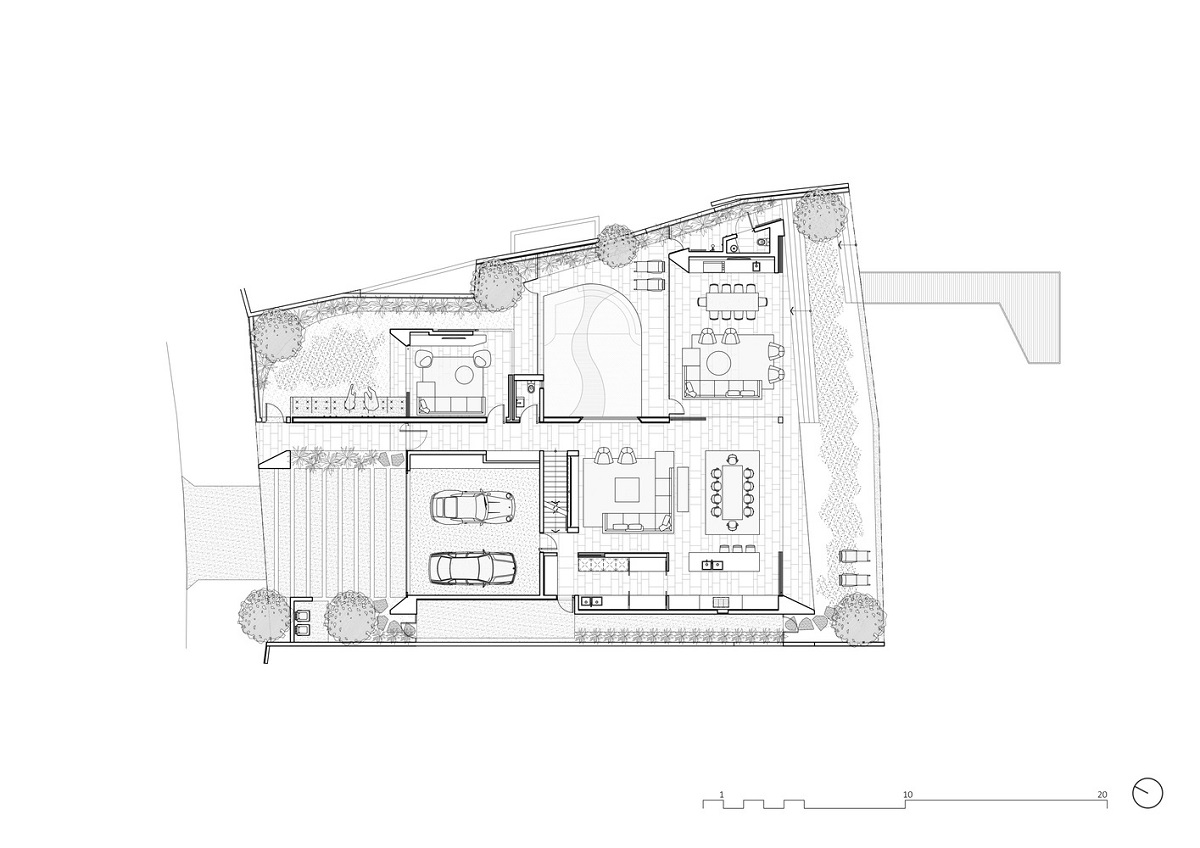
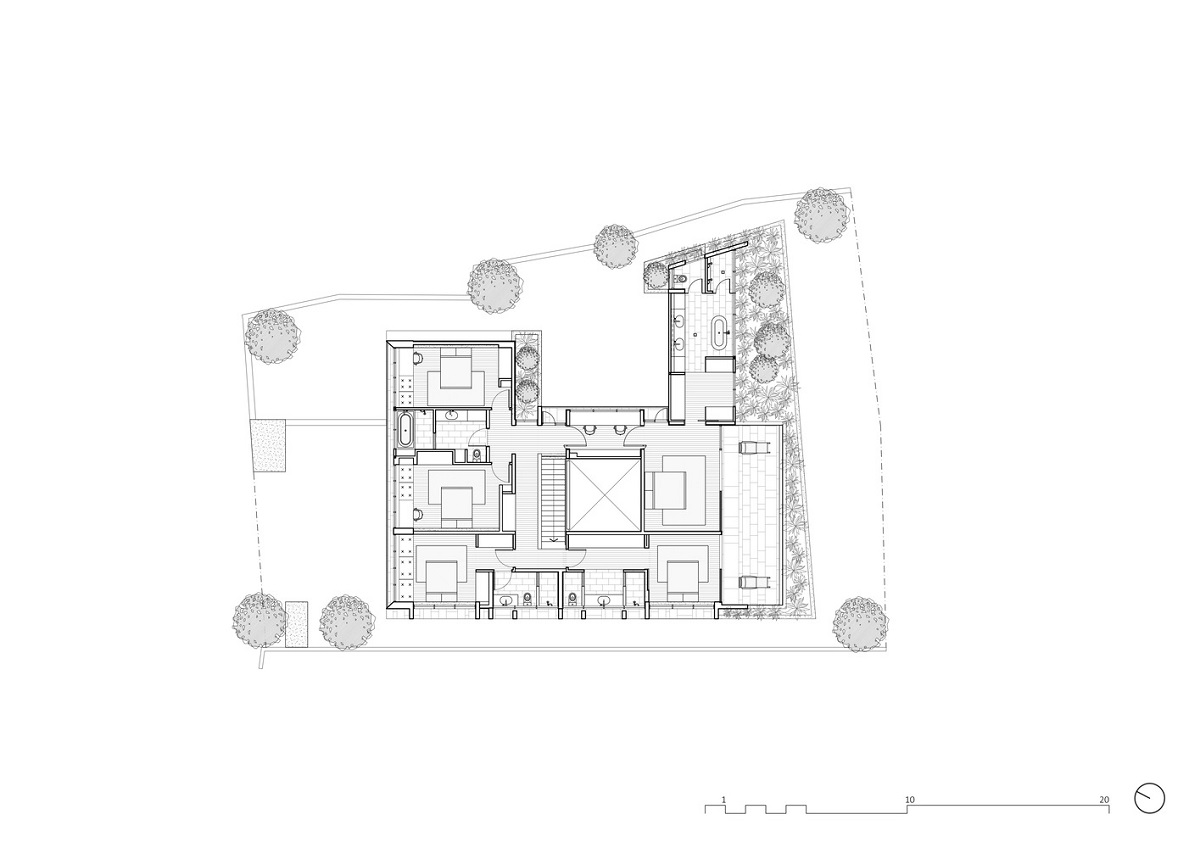









Discussion about this post